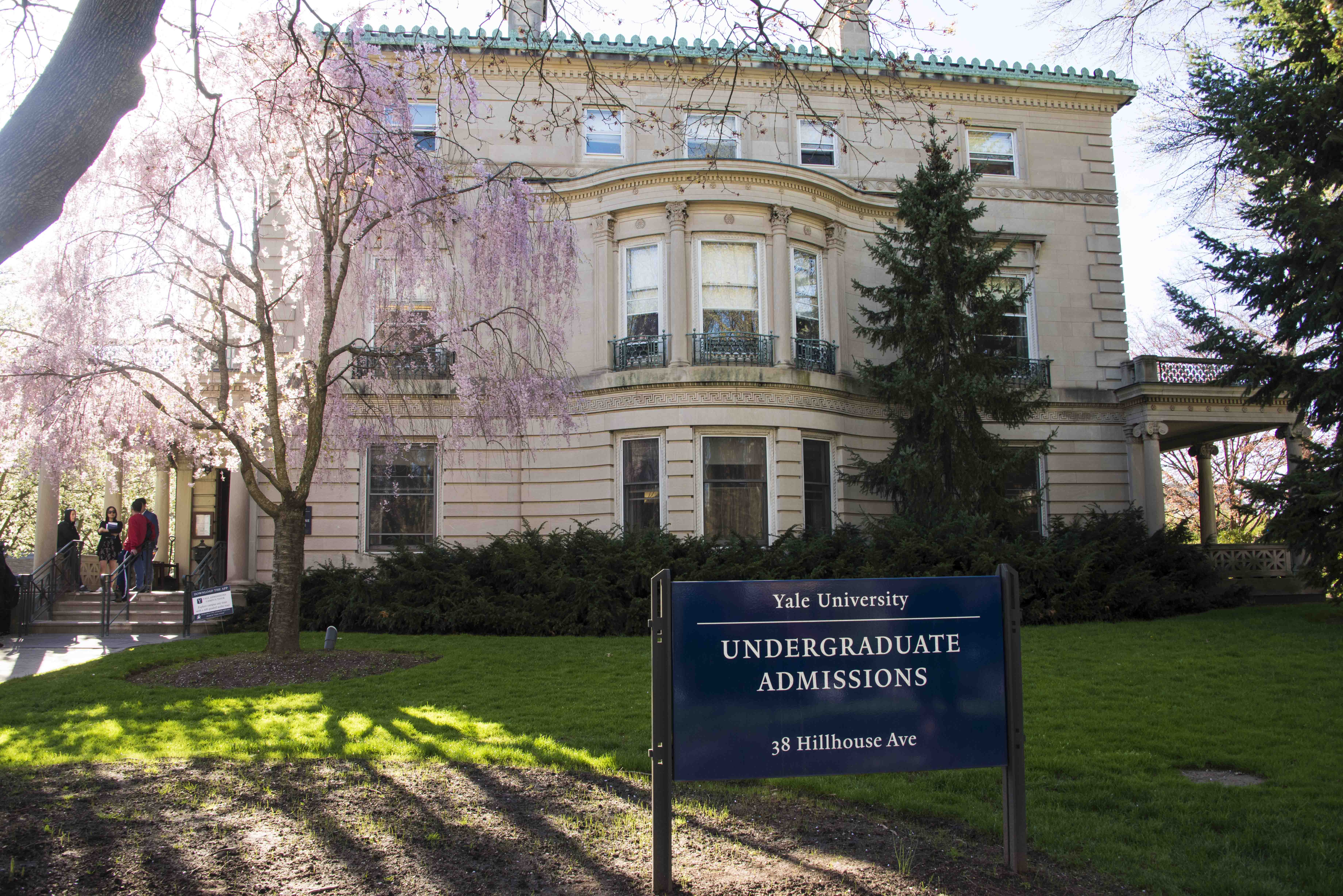
Madelyn Kumar
Yale College admitted 796 students out of a total of 5,777 early action applicants to the class of 2024 on Monday.
The number marks a 13.8 percent admission rate for early action, up from the class of 2023’s 13.19 percent. Last year, Yale accepted 794 students early action, while 842 were offered a spot at Yale in December the year before. This year’s early action applicant pool was smaller than last year’s record-setting group of 6,020 applicants, and similar in size to the 5,733-applicant pool for the class of 2022.
According to Dean of Undergraduate Admissions and Financial Aid Jeremiah Quinlan, 56 percent of the 5,777 students who applied through early action were deferred for reconsideration in the spring, 29 percent were denied admission and 1 percent were withdrawn or incomplete.
“The Admissions Committee was very impressed with this year’s early applicant pool across every dimension,” Quinlan wrote in a press release statement. “We are pleased to offer admission to this first group of students in the Class of 2024 and look forward to admitting a much larger group of students through our Regular Decision process this spring.”
The newly admitted students will be the fourth class to be part of the expansion of Yale College from approximately 5,400 undergraduates in 2016 to approximately 6,200 undergraduates in 2020. They will also be part of the fourth class to be placed in the new residential colleges, Pauli Murray and Benjamin Franklin, during their first year. The planned expansion was designed to increase the population of Yale College by 200 students each of the four years.
On Dec. 2, Yale also offered admission to a record 87 students through the QuestBridge National College Match program, a nonprofit that helps low-income students apply to leading colleges — a 58-percent increase from last year’s record of 55 matches.
Those who matched with Yale through QuestBridge qualify for Yale’s most generous financial aid award, which includes a $0 parent share. This aid will include hospitalization insurance coverage, a $2,000 start-up grant in the first year and a student share expectation of $3,700. The student share expectation is equal to Yale’s estimate for out-of-pocket expenses like books, laundry and other personal expenses.
According to Dunn, when reviewing applicants from either the Early Action or the QuestBridge pools, the admissions committee makes sure to only vote to admit a student if they are “100 percent the student would also be admitted in the Regular Decision round.” No advantage is given to students who apply early, Dunn said.
Earlier this academic year, Yale College also announced a new financial aid policy for the 2020–21 academic year. For students whose families qualify for a $0 parent contribution, the new policy reduced the student effort from $4,450 for the first year at Yale and $4,950 in subsequent years to $3,700 for all four years. It also raised the family income threshold to qualify for “Yale’s most generous financial aid awards” from $65,000 to $75,000.
In addition to the new financial aid policy, Yale announced earlier this fall that the past several classes have all set records for socioeconomic diversity, with more than 1,000 Yale College students receiving Federal Pell Grants. Of those, more than 600 of those are in the first-year and sophomore classes. Additionally, the number of students per class class who will be the first in their families to graduate from college has increased by 75 percent in the past six years.
These early admissions offers are non-binding, and admitted students will have until May 1 to reply.
Last week, Harvard University, Brown University and Cornell University accepted 13.9, 17.5 and 23.8 percent of early action applicants respectively.
Kelly Wei | kelly.wei@yale.edu







